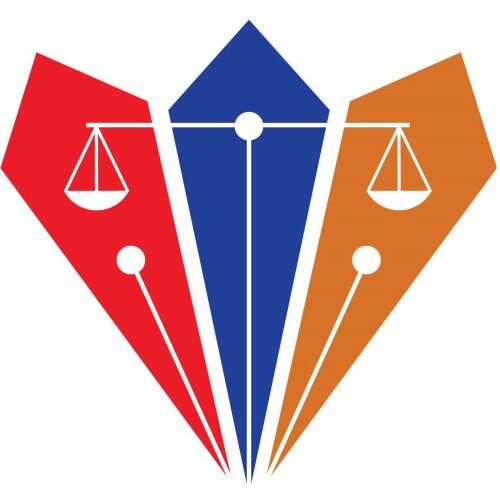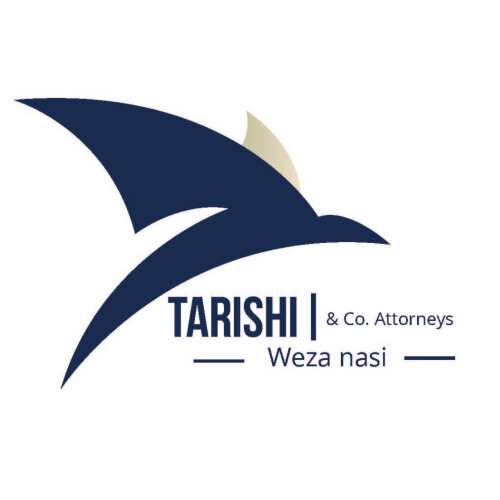Best Energy, Environment & ESG Lawyers in Dar es Salaam
Share your needs with us, get contacted by law firms.
Free. Takes 2 min.
List of the best lawyers in Dar es Salaam, Tanzania
About Energy, Environment & ESG Law in Dar es Salaam, Tanzania
Energy, Environment, and Environmental, Social, and Governance (ESG) law is an important and growing field in Dar es Salaam and across Tanzania. As the country continues to develop its natural resources and energy infrastructure, legal frameworks have been designed to regulate the exploration and use of resources, promote sustainable development, and protect the environment and local communities. In addition, global trends in ESG are influencing businesses, requiring compliance not only with local laws but also with international standards regarding environmental responsibility, social impact, and transparent governance.
Why You May Need a Lawyer
Navigating the legal landscape around energy projects, environmental protection, or ESG compliance in Dar es Salaam can be complex. Common scenarios where legal help is essential include:
- Securing permits and licenses for energy projects (oil, gas, renewable energy, etc.)
- Ensuring compliance with environmental regulations during construction and operation of projects
- Performing environmental impact assessments (EIAs) and obtaining necessary approvals
- Managing environmental liabilities and disputes (such as pollution claims or land use conflicts)
- Understanding corporate governance requirements and ESG reporting standards
- Addressing community relations and social responsibility requirements for companies
- Responding to investigations or enforcement actions by regulatory authorities
- Mergers, acquisitions, or investments that involve environmental or ESG due diligence
Local Laws Overview
Tanzania has several laws and regulations governing energy and environmental matters, many of which are administered by national agencies but impact operations in Dar es Salaam. Key laws include:
- Environmental Management Act, 2004 - Sets out the general framework for environmental management, including requirements for EIAs and environmental permits.
- Petroleum Act, 2015 and Electricity Act, 2008 - Regulate the exploration, development, and distribution of petroleum and electricity respectively.
- Mining Act, 2010 - Governs the development of mining resources and mandates environmental and social safeguards.
- National Environmental Policy - Provides overarching policy direction for protection and sustainable use of natural resources.
- ESG Reporting - While there is no single ESG statute, companies must comply with various disclosure and reporting obligations, and many choose to follow international ESG frameworks to attract investment.
- Land Use and Community Involvement - Laws require engagement with local communities and attention to land rights, especially for large infrastructure or resource projects.
Regulatory authorities such as the National Environment Management Council (NEMC), Tanzania Petroleum Development Corporation (TPDC), Energy and Water Utilities Regulatory Authority (EWURA), and Mining Commission are key to compliance and permitting processes in Dar es Salaam.
Frequently Asked Questions
What is an Environmental Impact Assessment (EIA) and when is it required?
An EIA is a process used to evaluate the potential environmental impacts of a proposed project. In Tanzania, an EIA is mandatory for many large-scale projects before they can begin, and approval from NEMC is required.
Which permits are needed to start an energy project in Dar es Salaam?
Permits and licenses depend on the type of project, but generally include an EIA certificate from NEMC, sector-specific operation licenses (from EWURA for energy or the Mining Commission for mining), and land use or building permits from local authorities.
Who enforces environmental regulations in Dar es Salaam?
NEMC is the primary agency for enforcing environmental management laws. Other sector regulators (like EWURA and the Mining Commission) also play a role in implementation and oversight.
What are the penalties for non-compliance with environmental laws?
Penalties can include fines, orders to halt or remediate operations, suspension of licenses, and sometimes criminal liability for responsible individuals or companies.
How can companies ensure they meet ESG requirements in Tanzania?
Companies should assess relevant local laws, implement strong internal policies, conduct regular audits, and consider voluntary certifications based on international ESG frameworks.
Are there mandatory ESG reporting requirements for Tanzanian companies?
There is no specific nationwide ESG reporting obligation, but certain industry sectors and listed companies have disclosure requirements. Voluntary reporting using global ESG standards is encouraged, especially for companies seeking international investment.
Can communities challenge an environmental permit or project?
Yes, affected communities or individuals can file objections during public consultation periods or challenge NEMC's decisions through administrative or legal processes.
How long does it take to get environmental approvals for a new project?
Timelines vary by project size and complexity, but most EIA processes range from a few months to over a year, depending on the scope and nature of required studies and consultations.
What legal steps should be taken during project planning?
Projects should undertake due diligence, secure legal advice early, conduct environmental and social risk assessments, and engage stakeholders to ensure all regulatory and ESG concerns are addressed before permits are sought.
What are the main risks of ignoring ESG factors in Tanzania?
Ignoring ESG may result in legal sanctions, loss of licenses, reputational harm, difficulty accessing finance, and challenges from communities or civil society groups.
Additional Resources
For further information or support, individuals and companies can reach out to:
- National Environment Management Council (NEMC) - For permits, EIA, and environmental compliance
- Energy and Water Utilities Regulatory Authority (EWURA) - For energy sector regulation and licensing
- Mining Commission - For mining licenses and compliance
- Tanzania Investment Centre (TIC) - For investors in large-scale projects
- Law Society of Tanzania - For qualified legal practitioners with expertise in these fields
- Relevant local government offices in Dar es Salaam for land and development permits
Next Steps
If you need legal advice or support in energy, environment, or ESG matters in Dar es Salaam:
- Identify your specific needs (permitting, compliance, dispute resolution, reporting, etc.)
- Gather all relevant documentation relating to your project or issue
- Seek out a qualified lawyer who has experience in energy, environmental, and ESG matters in Tanzania
- Contact regulatory bodies for guidance on required permits or procedures
- Maintain open communication with stakeholders, including local communities and governmental agencies
- Consider ongoing legal support for compliance, risk management, and engagement with evolving ESG trends
Early legal consultation is recommended to ensure your project or business operates smoothly, avoids costly delays, and stays aligned with both legal requirements and best practices in sustainability and governance.
Lawzana helps you find the best lawyers and law firms in Dar es Salaam through a curated and pre-screened list of qualified legal professionals. Our platform offers rankings and detailed profiles of attorneys and law firms, allowing you to compare based on practice areas, including Energy, Environment & ESG, experience, and client feedback.
Each profile includes a description of the firm's areas of practice, client reviews, team members and partners, year of establishment, spoken languages, office locations, contact information, social media presence, and any published articles or resources. Most firms on our platform speak English and are experienced in both local and international legal matters.
Get a quote from top-rated law firms in Dar es Salaam, Tanzania — quickly, securely, and without unnecessary hassle.
Disclaimer:
The information provided on this page is for general informational purposes only and does not constitute legal advice. While we strive to ensure the accuracy and relevance of the content, legal information may change over time, and interpretations of the law can vary. You should always consult with a qualified legal professional for advice specific to your situation.
We disclaim all liability for actions taken or not taken based on the content of this page. If you believe any information is incorrect or outdated, please contact us, and we will review and update it where appropriate.
Browse energy, environment & esg law firms by service in Dar es Salaam, Tanzania
Dar es Salaam, Tanzania Attorneys in related practice areas.













